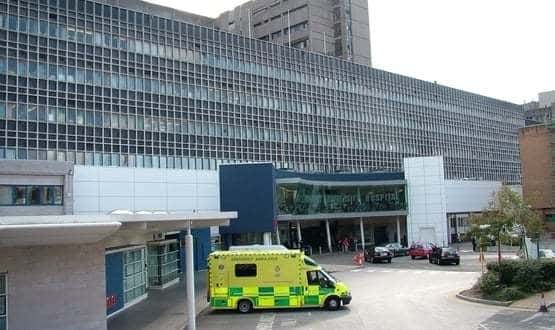Royal Liverpool launches its GDE strategy with region-wide EPR plans
- 11 July 2017

One of the acute global digital exemplars (GDE) has released their digital strategy that puts a region-wide electronic patient record at its heart.
The Royal Liverpool and Broadgreen University Hospitals launched its GDE plans at iLinks conference on 5 July, and describes NHS’s England’s flagship initiative as “fundamental to digital Liverpool”.
The strategy, written by the Aidan Kehoe, the chief executive, David Walliker, chief information officer and Mike Fisher, chief clinical information officer, has four key areas: the EPR, digital innovation, digital transformation and the building of the new Royal hospital.
Intersystems’ TrakCare, won the £70 million tender for an EPR across Royal Liverpool, Liverpool Women’s NHS Foundation Trust and Aintree University Hospital NHS Foundation Trust in March.
Speaking to Digital Health News, Walliker said that the EPR implementation began across all three trusts in April, and all trusts are scheduled to go live by November 2018.
“It’s going to be hard. To do in one trust in 18 months is stuff of legend isn’t it?”
Aintree are going live in two phases, and Liverpool Women’s and the Royal are going live in a big bang.
The strategy says the city wide EPR will “enable real-time digital information will be provided at the point of care, eliminating paper processes and records that cause inefficiency and fragmentation of service delivery”.
Walliker says “we’re on track”, but the trust has “got to be conscious of the change fatigue for staff”.
The Royal are still yet to officially sign a contact with Intersystems, as they are waiting for funding approval from NHS Improvement.
“We’re still investing some money at risk, from the trust’s perspective, because even in the event that they say ‘no you can’t sign that contract’, those improvements will need to be made”, said Walliker.
The GDE scheme is NHS England’s strategy to improve digital maturity in the NHS by making digitally advanced trusts exemplars for other trusts to follow, so called fast-follower trusts.
Kehoe referred to the slow appearance of GDE funds in his keynote, but said that the Royal was not “resting on its laurels”, for its digital ambitions.
The increased funding pot of £160 million, was due to begin being released in November last year, but the money only started arriving in June this year.
Walliker said that even without the GDE programme, the changes would still be being made.
“If GDE didn’t exist we would have been doing this anyway”, he said, “but we might have taken longer or we might have had to scale back the ambition”.
“We thought we’ve got a compelling argument saying this is the right thing to do for the patients, then you can’t turn round and say well we’re going to wait for the money.”
The other tenets of the strategy include achieving HIMSS Level 7 in April 2020, the completion of the new Royal and developing its patient electronic notes systems (PENS) further.
The bar is set high for digital transformation. “The experience of technology application for staff and patients in our trust should be better than their home experience”, the document said.
The strategy says that the city of Liverpool has 20 million shared records, fully digitalised about 400,000 patient case notes and 1.2 million discharge summaries are sent digitally from secondary to primary care.
Kehoe described the region as a “leader in digital care and innovation”, and the area has the highest concentration of GDEs in the country with a total of four. He told audience at Aintree Racecourse that the GDE scheme has been a “great success story for Liverpool”.
Royal Liverpool is one of the largest university teaching trusts in the north west of England.





3 Comments
I’d also disagree with that – admittedly we don’t place large demands on InterSystems compared to what will be required for an EPR deployment, but we get excellent support from them.
@ EPR Expert – Scotland is part of the UK isn’t it? I think they might disagree with that statement….
With InterSystems not having deployed much meaningful clinical capability anywhere in the U.K., these ‘ambitions’ (both timeline and breadth of capability) should be bookmarked and referenced in the years to come. Wirral and Oxford have taken almost a decade to get near HIMMS Level 7, and that’s with a large and well resourced organisation. Time will tell.
Comments are closed.